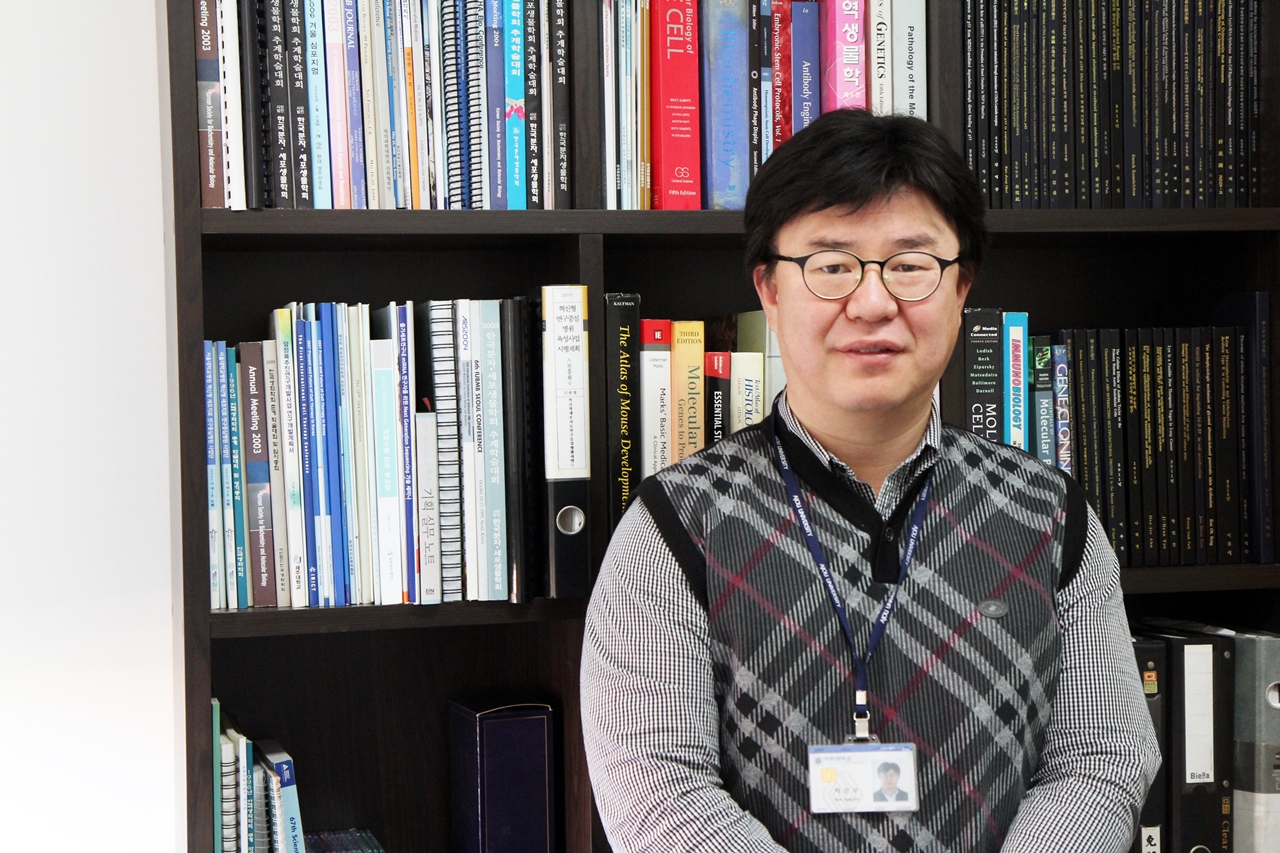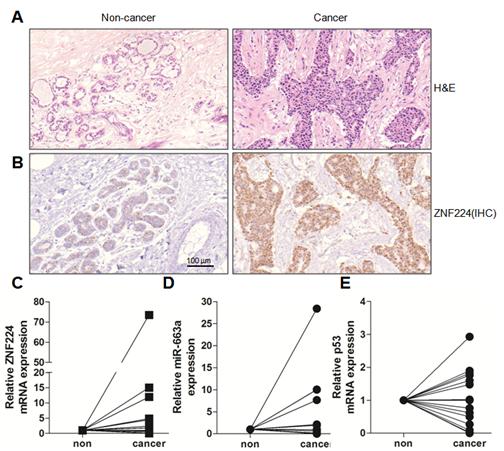- About Ajou
- Admission
- Academics
- Research
-
International
International
- Campus Life
-
News and Event
News and Event
-
AUT
AUT
Ajou News
NEW (2016.05.02)Ajou's Professor Sang Kyu Park discovers a new protein that controls breast cancer cells
- 2016-05-09
- 25136

Ajou's Professor Sang Kyu Park discovers a new protein that controls breast cancer cells
[2016.05.02]
A research team led by Ajou University Professor Sang Kyu Park (pictured above, Department of Pharmacy) discovered a new protein – ZNF224 – that controls the growth and extinction of breast cancer cells. The discovery identified the relationship between the new protein and breast cancer cells and is expected to contribute to the treatment of breast cancer and the development of related medicines.
The findings were published in the April issue of The Oncotarget, a renowned academic journal in the field of cancer, under the title of "ZNF224, Krüppel like zinc finger protein, induces cell growth and apoptosis-resistance by down-regulation of p21 and p53 via miR-663a." The research was conducted with the support of the General Researcher Support Project, which is carried out by the Ministry of Science, ICT, and Future Planning.
According to the International Agency for Research on Cancer under the World Health Organization, breast cancer is the most common cancer among women in the world. In 2002, it also surpassed stomach cancer to become the leading cancer for South Korean women. Cancer is caused by a combination of various environmental factors and genetic variations.
ZNF224, which was discovered by Professor Park's team, is a new transcription factor that controls the expression of p53 and p21 within breast cancer cells. Transcription factor refers to the protein that controls expression or suppression of certain genes by combining with their DNA. P53 and p21 are known to be deeply involved in cancer incidence as the proteins control the cycle and extinction of cells.
Professor Park's team confirmed that ZNF224 suppresses the expression of p53 and p21 by promoting the expression of miR-663a, a kind of microRNA that controls other genes within cells. The team also found that cell strains of breast cancer where ZNF224 is overly expressed showed resistance to CPT, a kind of anti-cancer medicine. The research of ZNF224 had previously focused on phenomenological models, and Professor Park's findings are the first to identify the relationship between ZNF224 and the proliferation of breast cancer cells through a cellular-level analysis. Thus, ZNF224 and miR-663a are expected to be used in developing bio markers for breast cancer diagnosis and targets for the treatment of the cancer.
Professor Park said, "We found out that ZNF224 and miR-663a were indeed over-expressed in the tissues of breast cancer patients than those of others," adding, "This confirms that ZNF224 promotes the growth of cancer cells and resistance to their extinction as a transcription factor."
He went on to say, "The results show that ZNF224 is very likely to become a target in developing breast cancer medicines," adding, "I expect that our finding will provide new possibilities of curing breast cancer by suppressing ZNF224 or its target genes."

< Pictured above, Professor Sang Kyu Park’s team confirmed overly expressed ZNF224 and miR-663a in the tissues of breast cancer patients. >
